A modern take on a traditional tea house, Wulu on Fenyang Lu provides a refreshing alternative to always grabbing a coffee or cocktail. Partners Ting Huang and Dinguo Zheng (Vege Wonder 山河万朵, a one Michelin-star restaurant in Beijing) offer guests everything from sparkling teas to nitrogen teas to cold-drip teas, along with Chinese fusion sharing dishes that highlight local ingredients in a bright, outdoor-like urban garden atmosphere. We sat down with Ting to learn more about her background – training in a New York Michelin-star restaurant – and why she decided to move back to Shanghai and start her own place.

Image by Sophie Steiner/That's
How did you get started as a chef?
I always loved going to food markets and reading cookbooks when I was younger. I believe that food makes people happy. One day, while watching the Netflix documentary series about chefs called Chef’s Table, I realized I too wanted to become one. The next thing I knew, I was applying to culinary school.
 Roasted Pork Ribs with Sweet Sauce (RMB88), Image by Sophie Steiner/That's
Roasted Pork Ribs with Sweet Sauce (RMB88), Image by Sophie Steiner/That's
My background is actually in advertising and graphic design, which I studied in New York, but after deciding to pursue my passion for cooking full time, I applied to the New York Institute of Culinary Education, where I eventually graduated from culinary school, and then started working full time as a chef at the Michelin star restaurant Contra.
What made you want to move back to Shanghai to open a restaurant?
I grew up in Shanghai and was heavily influenced by how international it is. In Shanghai we have access to cuisines from all over the world. People here appreciate traditional Chinese cuisine but also accept food from around the globe. So, after working for over a year in New York, I decided it was time to come back to my roots and open my own place.
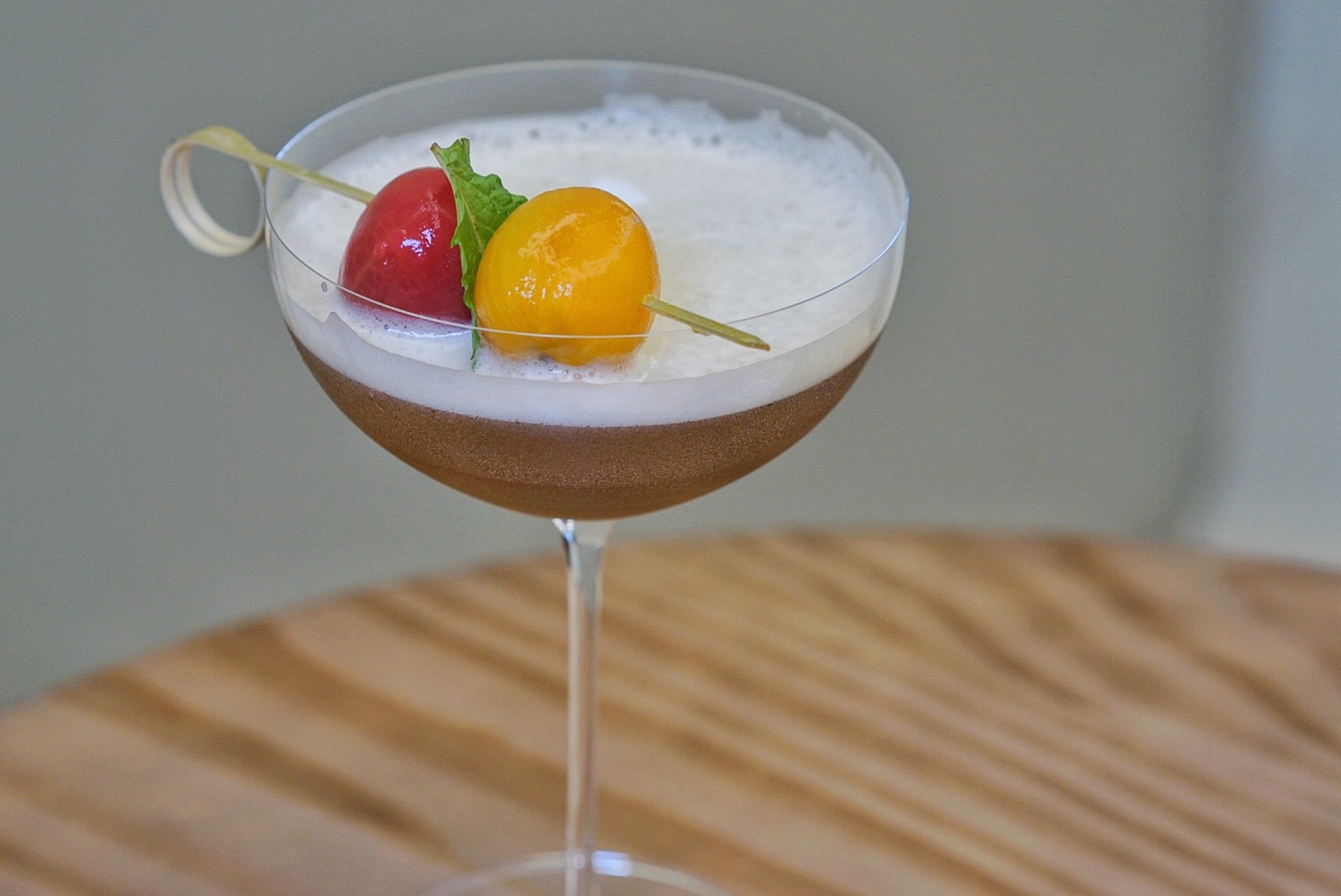
Image by Sophie Steiner/That's
At Contra, the restaurant focused on fusion cuisine and offered a tasting menu. I knew I personally wanted to focus more on Chinese-specific dishes at my own restaurant, but I still use a lot of the techniques at Wulu that I learned at Contra, like pickling many ingredients.
In the Strawberry Nitrogen Tea (RMB42), we serve it with pickled heirloom tomatoes for a contrasting tartness. None of our teas have any additives or extra sugar, so a little pop of flavor goes a long way in adding layers to the drinks.
How would you describe your newly opened restaurant Wulu?
Wulu is like an urban garden; it provides a relaxing environment for people to enjoy food, drinks and especially tea. It is a modern take on a tea house during daytime and a bistro at night. We have unique and interesting non-alcoholic teas, like nitrogen tea and sparkling tea, which act as the ideal alternative to highly caffeinated coffee drinks or alcoholic cocktails.

Image by Sophie Steiner/That's
The tea drinks are all very light, served in delicate glassware so you feel like you’re enjoying a cocktail, but without the added alcohol. (We do serve wine as well for those who prefer it.) We use modern techniques, like adding carbon dioxide to our cold-brew teas to make them sparkling, instead of just adding soda water. The food is Chinese fusion, focusing on Shanghai local ingredients and flavors.
 White Peach Martini Ooolong Tea (RMB48), Image by Sophie Steiner/That's
White Peach Martini Ooolong Tea (RMB48), Image by Sophie Steiner/That's
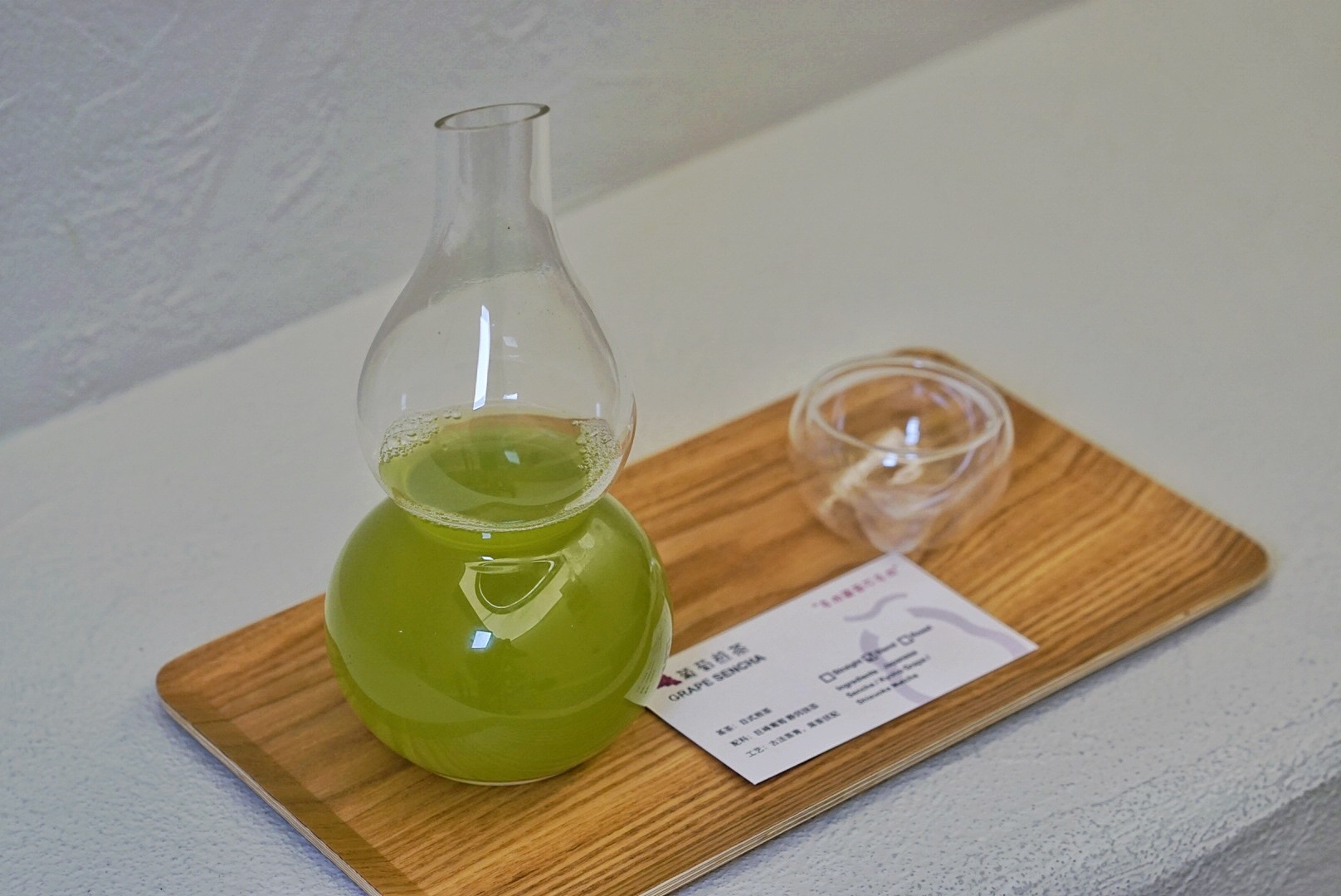
Image by Sophie Steiner/That's
The name Wulu comes from the Shanghainese word for bottle gourd, or hulu in Mandarin Chinese. These gourds represent happiness, luck, wealth and good fortune to Chinese people, and we want our restaurant to also share that same symbolism with our guests. A few of our tea drinks we actually serve in gourd-shaped carafes to tie into the theme as well.
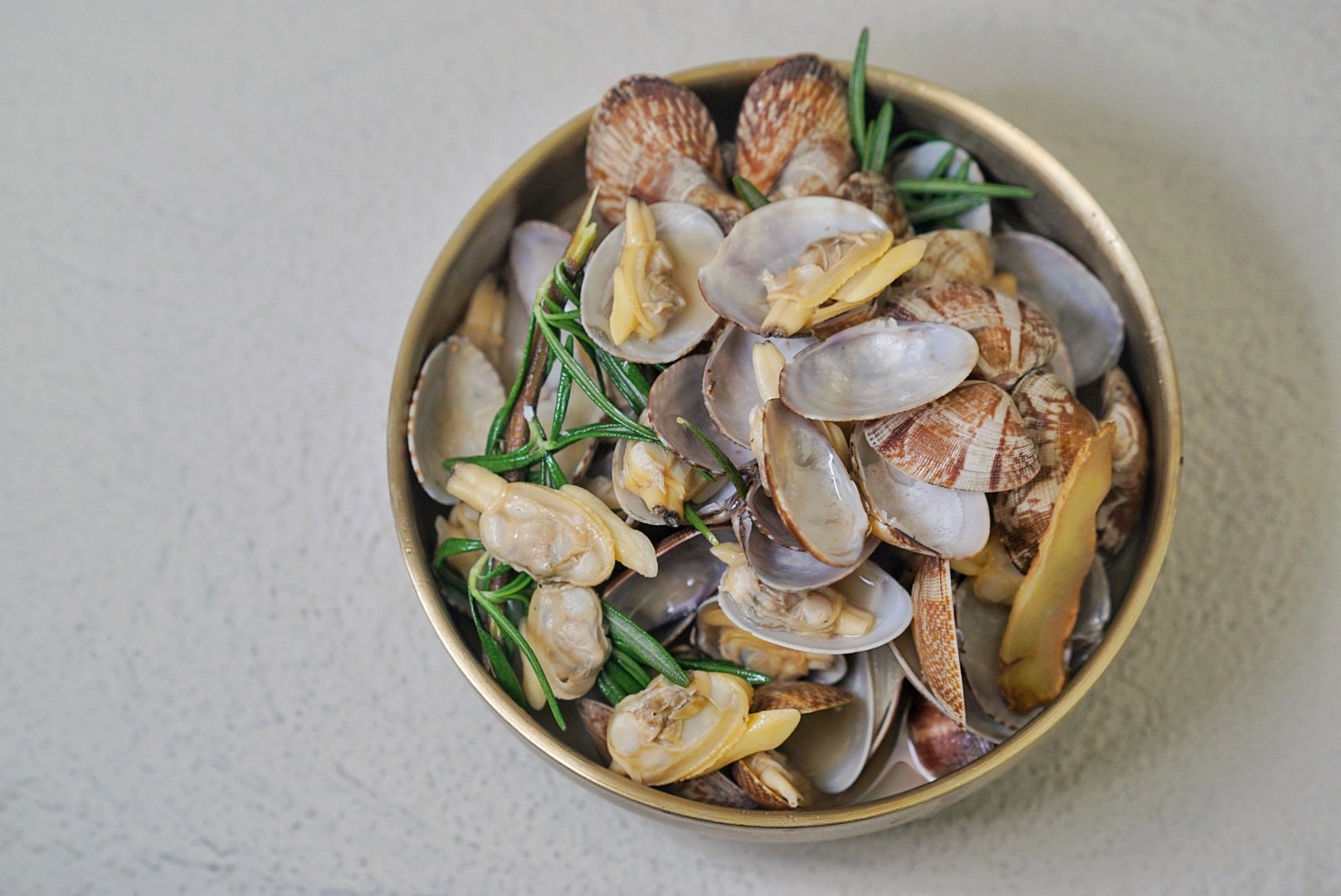
Image by Sophie Steiner/That's
What kind of cuisine is your favorite to cook?
Cooking Chinese food is always my first choice, specifically Guangdong cuisine, but at Wulu we focus mainly on pan-Chinese, using as many Shanghai-sourced ingredients as possible. For example, in our Drunken Clams (RMB68) we cook them in a broth made from Chongming Island Baijiu, with added flavors from ginger and rosemary.
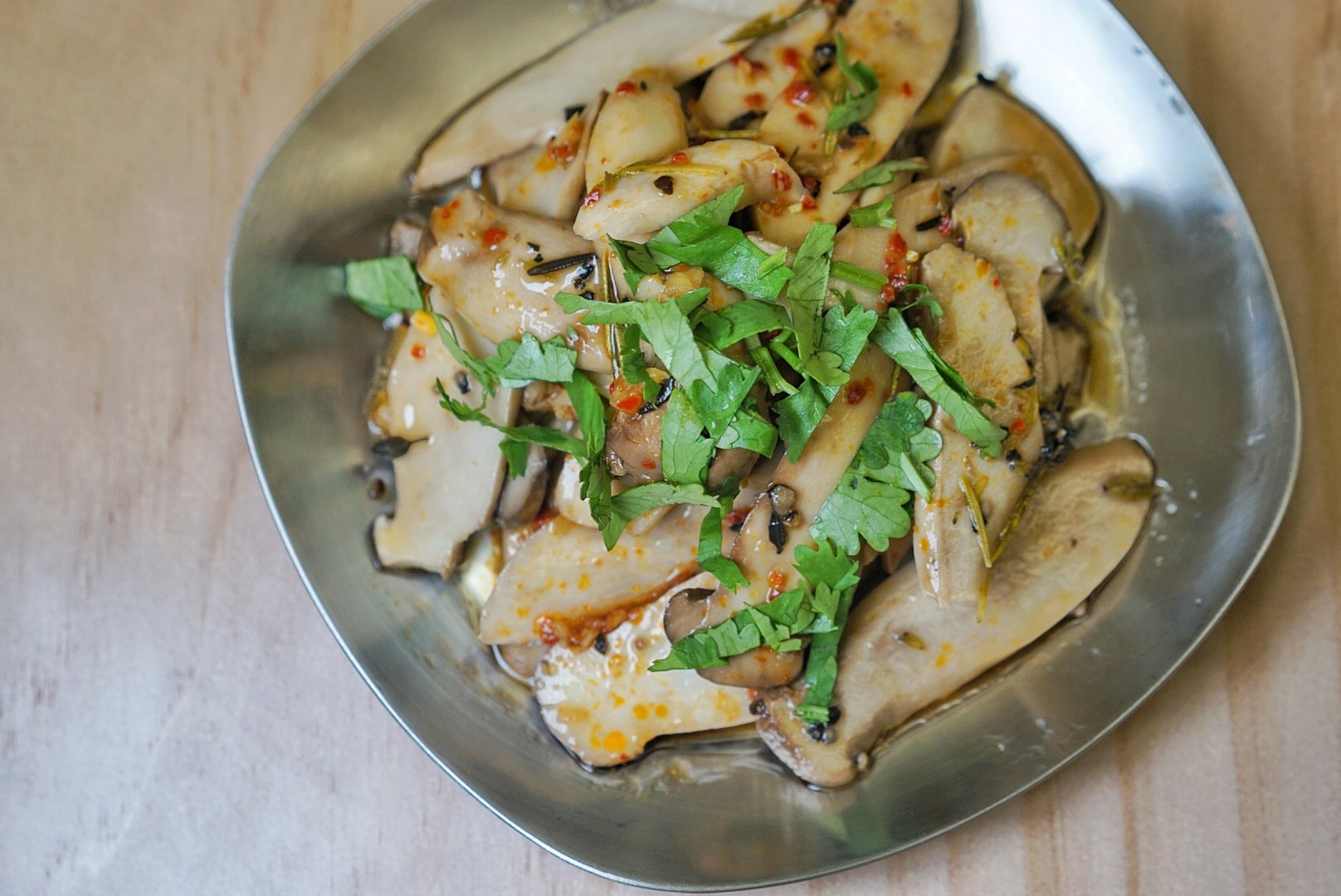
Image by Sophie Steiner/That's
The King Oyster Mushroom Confit (RMB58) sees Shanghai mushrooms cooked in their own juices until they are soft and tender with a texture resembling meat. Then, they are drizzled in chili oil, black pepper, rosemary and cilantro.
How is working in a kitchen in the USA different than China?
I think in America, chefs focus most on innovation and developing new dishes, while in China, chefs tend to follow tradition more and strive for excellence. Personally, I like to combine both of these concepts to fit my own cooking style, and I showcase that at Wulu.

Image by Sophie Steiner/That's
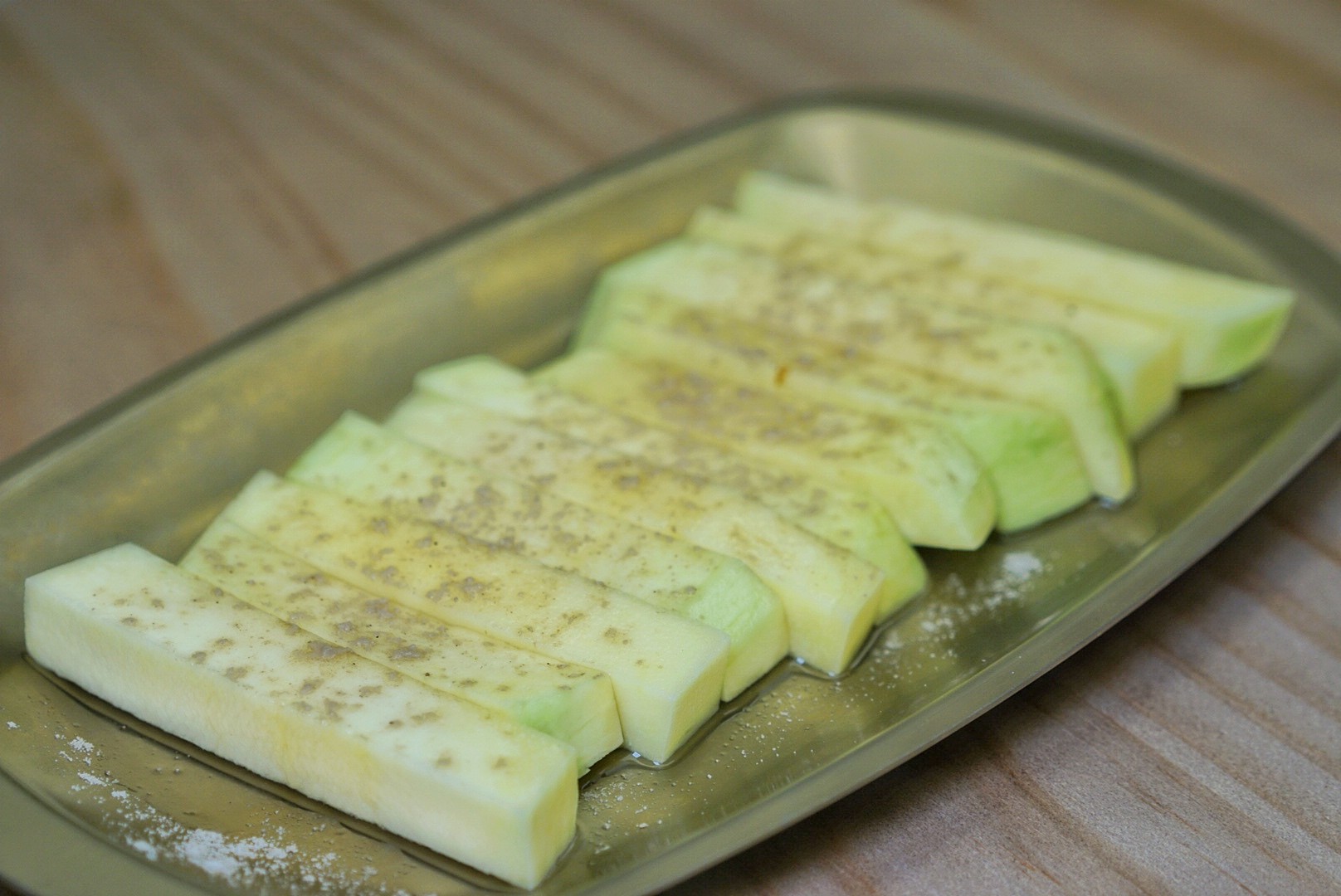
Image by Sophie Steiner/That's
What inspires you when creating new dishes?
I like to get inspiration from the local food of each place I visit. I think street snacks really reflect the food habits and essence of a region. For example, mangos are such a common snack in Hainan, so for the Pickled Green Mango (RMB39) I use Hainan mangoes, pickle them in preserved plum and sprinkle them with a light dusting of plum powder.
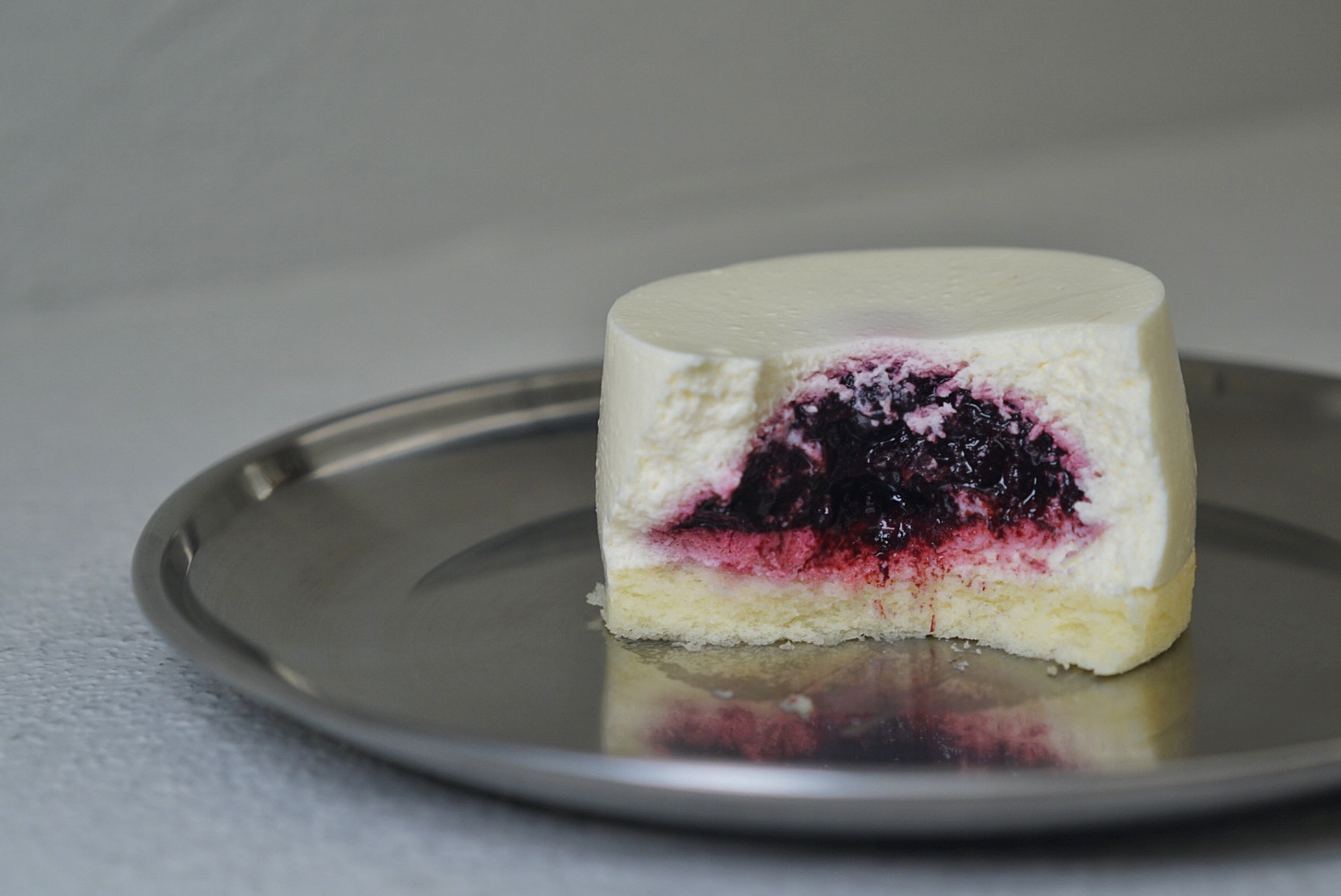
Image by Sophie Steiner/That's
I also plan to update the dishes monthly according to seasonality and guest feedback. Currently, we have a few different mousse dessert flavors, like watermelon, grapefruit and passion fruit, but the Blueberry Mousse (RMB42) is a seasonal flavor, made with real blueberries reduced down into a tart jam and then filled inside an airy mousse that is not too sweet or heavy, making it a perfect summer afternoon bite.

Image by Sophie Steiner/That's
What is your favorite dish on Wulu’s menu?
I love the Truffle Sticky Rice Puffs (RMB59) – they are deep fried and so crispy on the outside, but warm, gooey and delicately soft on the inside. The texture contrast, especially when coupled with a drizzle of vinegar and soy sauce, is addicting. Plus, they are vegan friendly!
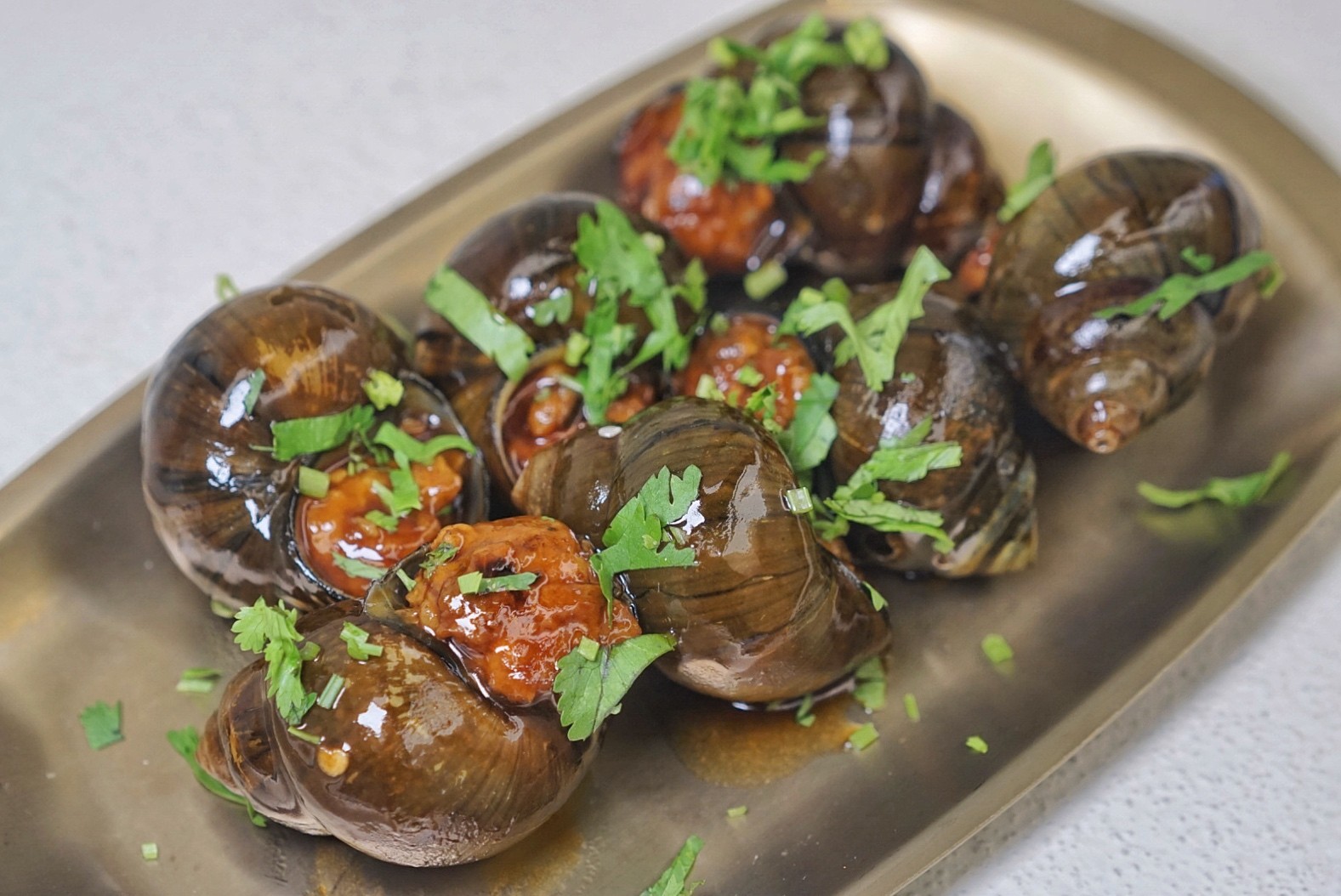
Image by Sophie Steiner/That's
I also am a big fan of the Braised Stuffed Snails (RMB98). We remove the snail meat, mix it with pork and a variety of spices, and then stuff it all back into the shell to stew it, resulting in a flavor explosion in each bite.

Image by Sophie Steiner/That's
Do you plan to open more venues in the future? If so, will they be the same or different than Wulu?
Sure, I hope so. I think I will keep the same tea menu because I want coffee drinkers to understand the charm and versatility of tea. Tea has such a longstanding tradition in China for a reason, but that doesn’t make it less interesting than coffee or cocktails, for example. I want to help show the younger generation how special tea can be, especially in a variety of different drinks, and allow people to reconnect with their ‘tea roots.’
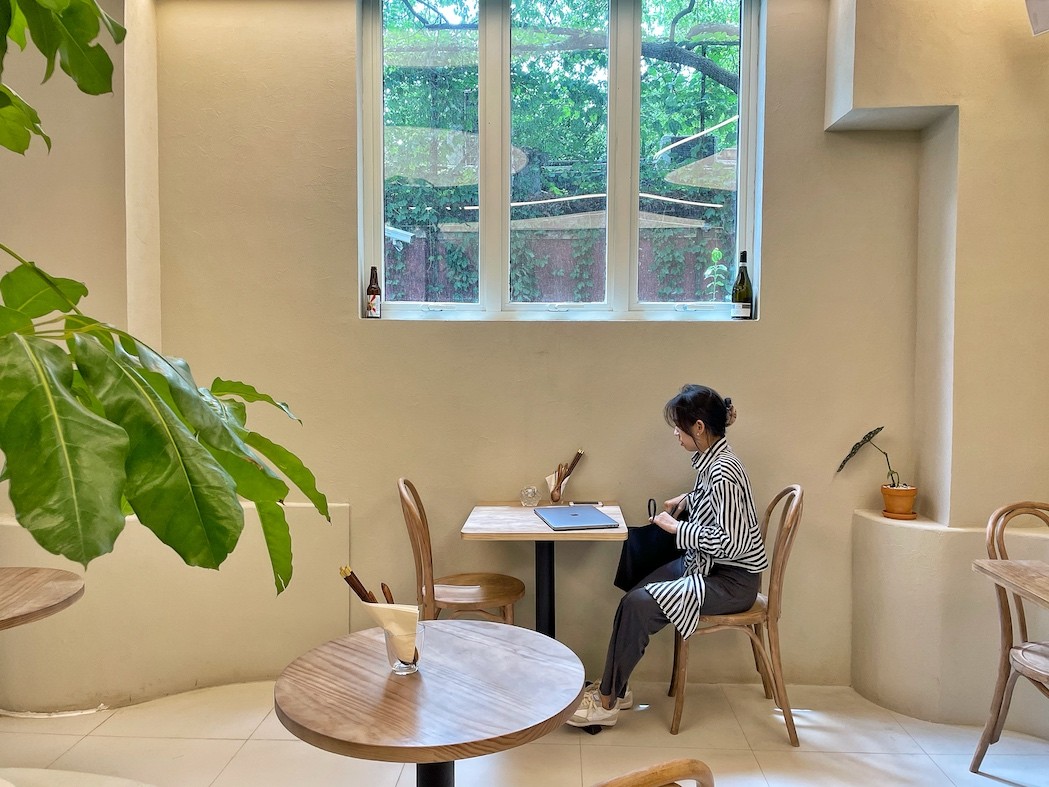
Image by Sophie Steiner/That's
See a listing for Wulu. [Cover image by Sophie Steiner/That's]
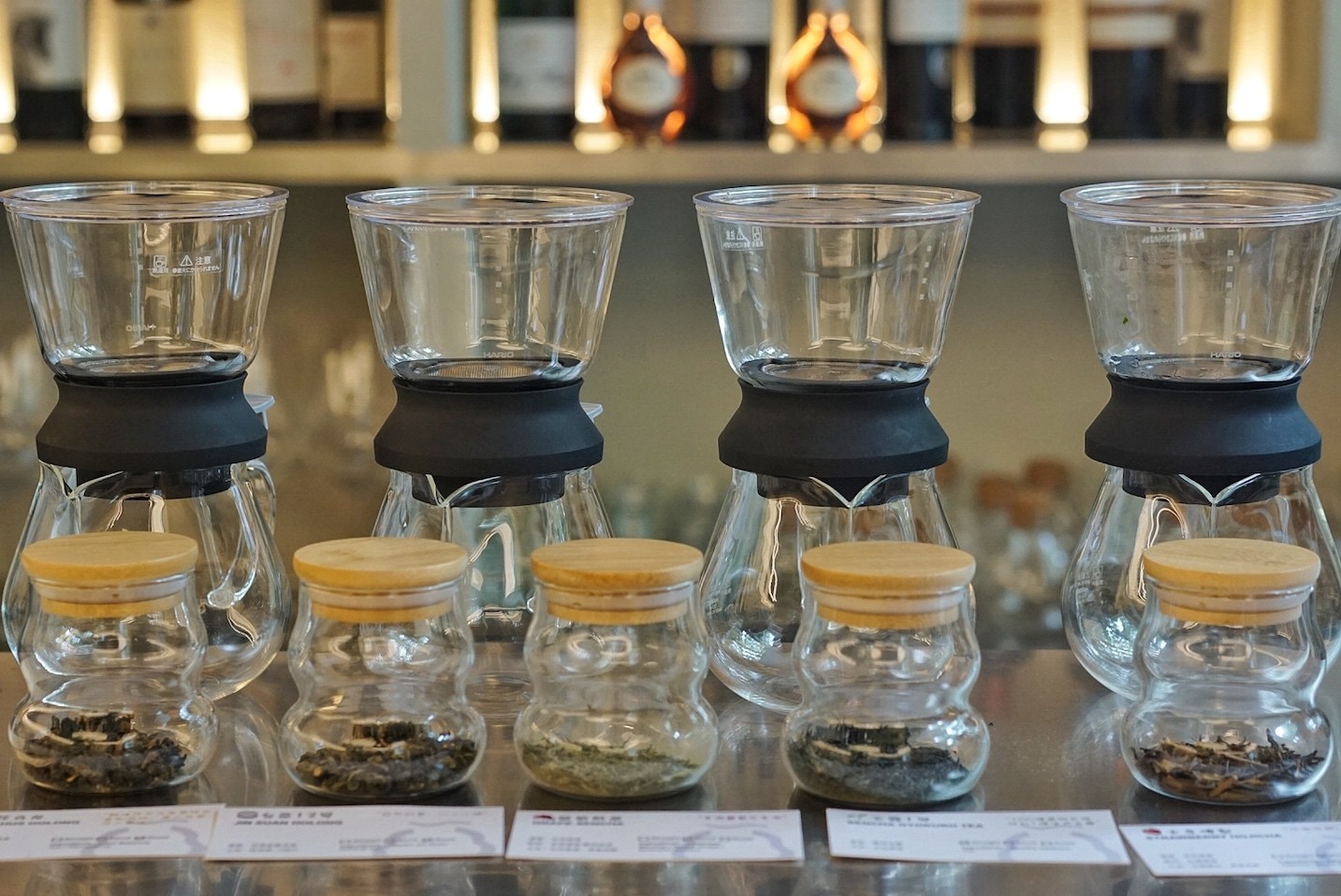




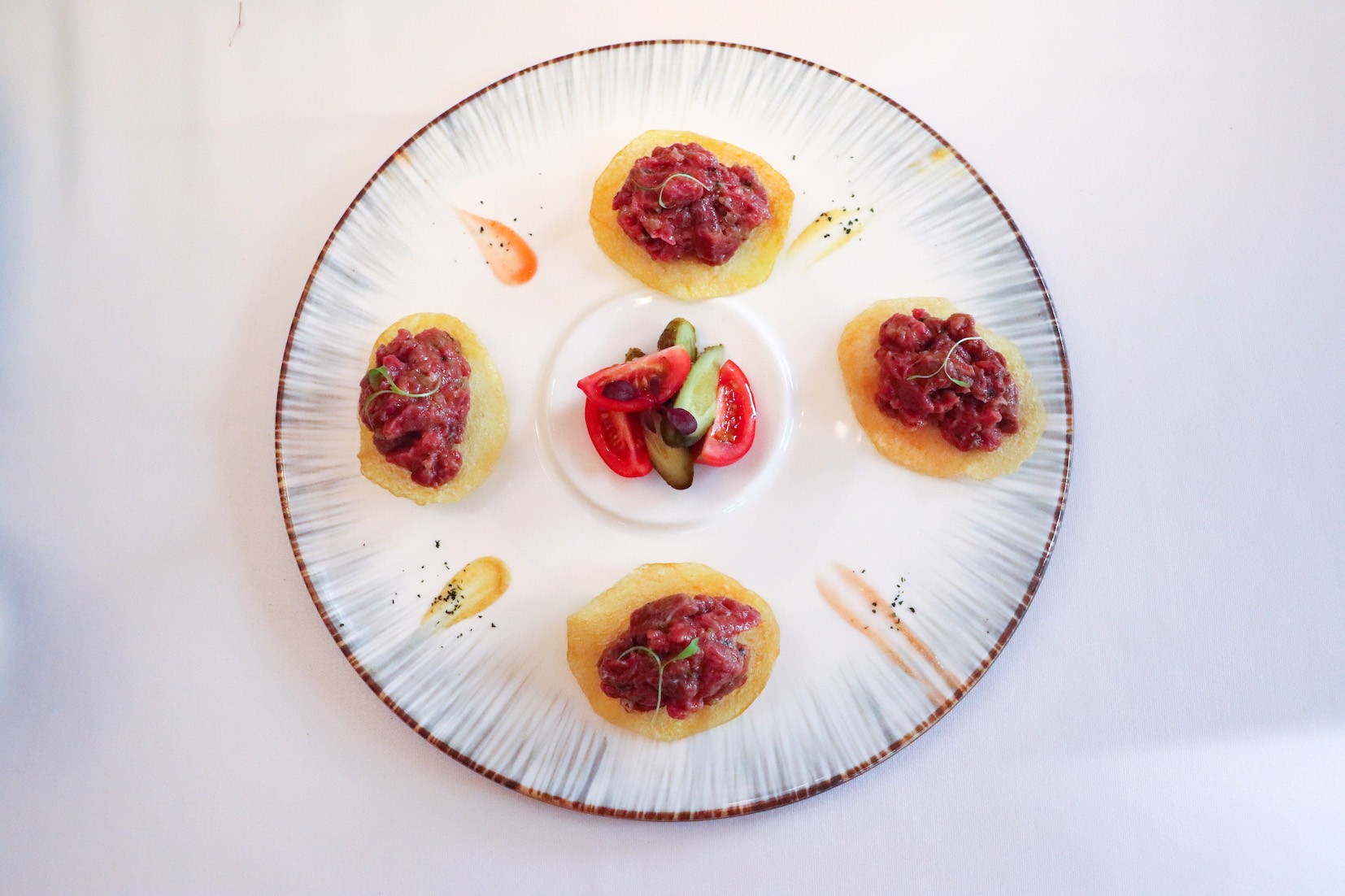















0 User Comments